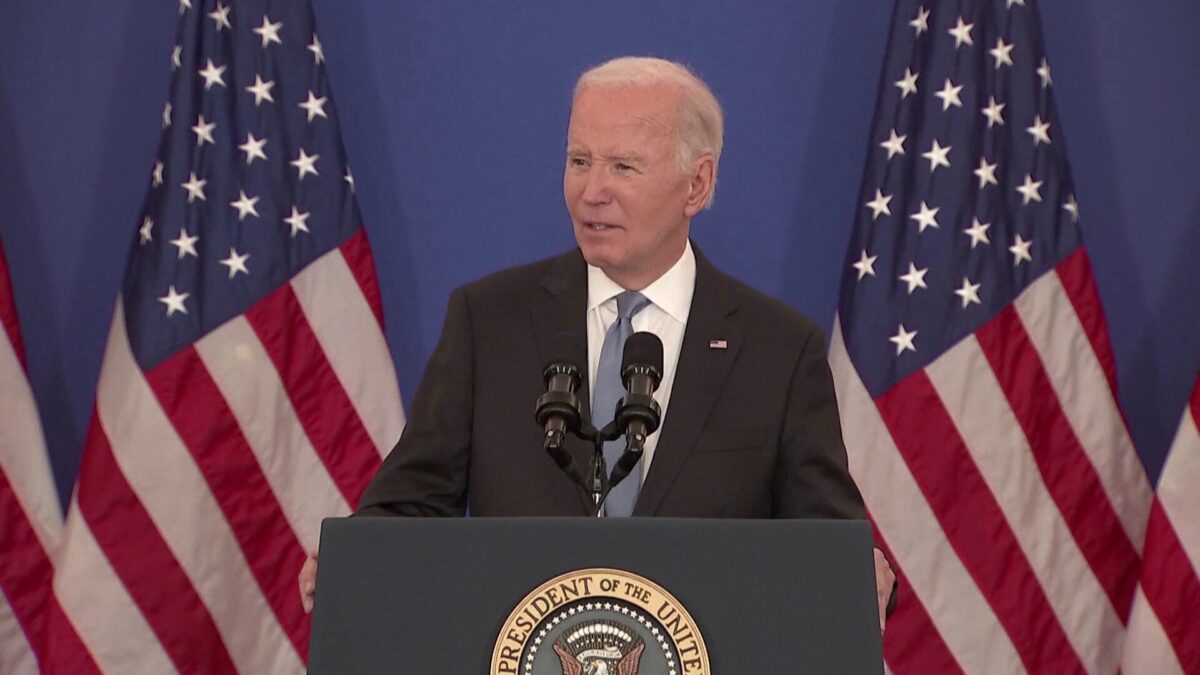WASHINGTON — President Joe Biden on Monday defended his decision to end America’s longest war by withdrawing troops from Afghanistan, framing it as a pivotal moment in his administration’s efforts to recalibrate U.S. foreign policy and focus on emerging global challenges.
“So when I took office, I had a choice,” Biden said during a speech at the State Department. “I saw no reason to keep thousands of servicemen in Afghanistan. The actual number of dead and wounded during our longest war, the hundreds of millions of dollars a day—we’re no longer doing that. In my view, it was time to end the war and bring our troops home, and we did.”
The withdrawal in 2021 marked the end of a two-decade conflict, but the chaotic evacuation of Kabul and the rapid takeover of Afghanistan by the Taliban drew widespread criticism. Biden argued that the decision allowed the United States to redirect resources and attention to broader global threats, including Russia’s invasion of Ukraine, China’s economic rise, and Iran’s regional influence.
“Compared to four years ago, America is stronger, our alliances are stronger, and our adversaries and competitors are weaker,” Biden said, asserting that his administration’s foreign policy achievements had bolstered the U.S. position on the global stage.
Reflecting on global challenges
While Biden highlighted his administration’s support for Ukraine and Israel as evidence of a strong U.S. presence abroad, critics have questioned the long-term consequences of his policies, particularly in Afghanistan. The Taliban’s rule has raised humanitarian concerns and reignited fears about regional instability, including the resurgence of terrorist groups.
Biden acknowledged ongoing conflicts in Ukraine and the Middle East but maintained that U.S. adversaries, including Russia and Iran, are in weaker positions today. He also emphasized that his administration had shifted to supporting allies through economic aid and weapon supplies rather than direct military involvement.
Middle East focus
Biden pointed to efforts to broker a deal between Israel and Hamas to secure the release of hostages held in Gaza and to implement a ceasefire that would allow humanitarian aid into the war-torn enclave.
The war in Gaza, which erupted after a Hamas attack on Oct. 7, 2023, has drawn significant international criticism. According to Palestinian health officials, more than 46,000 people have been killed in Gaza, with large-scale displacement and destruction leaving much of the enclave in ruins.
The Biden administration has faced sharp criticism at home and abroad for its unequivocal support of Israel during the conflict. Outside the State Department on Monday, protesters chanting “war criminal” demonstrated against U.S. policies, with some throwing red liquid resembling blood.
Despite the criticism, Biden defended his approach, noting that U.S. assistance had bolstered Israel’s ability to confront threats from Hamas in Gaza and Hezbollah in Lebanon, both backed by Iran.
As Biden prepares to leave office on Jan. 20, he sought to frame his presidency as one that prioritized long-term strategic shifts, reducing U.S. involvement in prolonged wars while confronting emerging global challenges.
“The challenges are immense,” Biden said, “but so is our resolve to meet them.”





